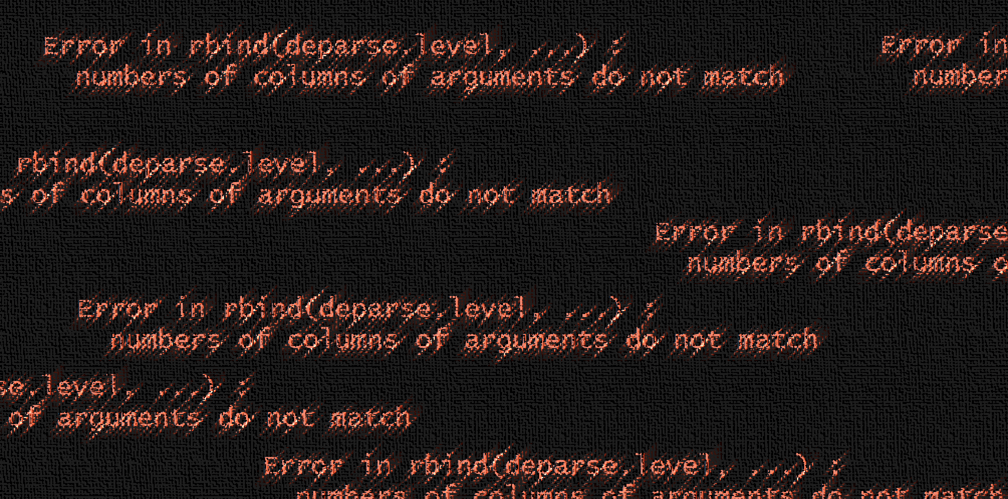If you are having this rbind error “numbers of columns of arguments do not match”, there might be a solution to this problem. It is caused by different column names in data frames. The good news is that there is a quick solution to that.
Here are two data frames. The second one has a column that the first does not.
df1 <- data.frame(
agent = as.character(c("David", "David", "David", "Kate", "Kate", "Alma", "Alma")),
manager = as.character(c("Lisa", "Monica", "Karl", "Kianna", "Luna", "Kaylin", "Georgia"))
)
df2 <- data.frame(
agent = as.character(c("David", "David", "David", "Kate", "Kate", "Alma", "Alma")),
manager = as.character(c("Lisa", "Monica", "Karl", "Kianna", "Luna", "Kaylin", "Georgia")),
team = as.character(c("Sales", "Sales", "Sales", "Billing", "Sales", "Sales", "Sales"))
)After appending them by using rbind, I’m getting an error “numbers of columns of arguments do not match”.
rbind(df1, df2) #Error in rbind(deparse.level, ...) : # numbers of columns of arguments do not match
The solution of rbind error
If it is not a problem with your data, and you want to append those data frames, then try to use bind_rows from the dplyr package.
bind_rows(df1, df2) # agent manager team #1 David Lisa NA #2 David Monica NA #3 David Karl NA #4 Kate Kianna NA #5 Kate Luna NA #6 Alma Kaylin NA #7 Alma Georgia NA #8 David Lisa Sales #9 David Monica Sales #10 David Karl Sales #11 Kate Kianna Billing #12 Kate Luna Sales #13 Alma Kaylin Sales #14 Alma Georgia Sales
As you can see, the problem is solved. For the data frame that does not contain a specific column appears NA values.
Check out my favorite RStudio tips and tricks. For example, how to quickly view a data frame from R script.
If you are new to R but experienced in Excel, then it might be useful to take a look at the ideas on how to switch from Excel to R.

Leave a Reply